ENRICH Forum: Ethical aNd Regulatory Issues in Cancer ResearcH

Overview
NCI's ENRICH Forum is designed to stimulate dialogue on ethical and regulatory issues in cancer research and promote awareness of developing policies and best practices. The Forum, sponsored by the Division of Cancer Control and Population Sciences (DCCPS) and the Division of Cancer Treatment and Diagnosis (DCTD), presents educational programs and occasional deliberative sessions focused on specific ethical, legal and social issues involving cancer research.
Upcoming Topics and Speakers
There are currently no upcoming webinars scheduled.
Note: Additional speakers and topics may be added in the future.
Past Topics and Speakers
The Epidemiology and Genomics Research Program is dedicated to full accessibility and the inclusion of individuals with disabilities. We continuously strive to improve our recorded webinars' accessibility, recognizing that some may be more accessible than others. If you encounter any recorded webinar that does not meet your accessibility needs, please feel free to reach out to NCIDCCPSEGRPComms@mail.nih.gov.
2022
Re-establishing Justice as a Core Principle in Biomedical Research in the Aftermath of the COVID-19 Pandemic

Marion Danis, MD
Head, Section on Ethics and Health Policy
Chief, Bioethics Consultation Service
National Institutes of Health Clinical Center

Bruce J. Giantonio, MD, FACP
Attending Physician
Tucker Gosnell Center for Gastrointestinal Cancers
Massachusetts General Hospital, Boston Massachusetts
Executive Officer, The ECOG-ACRIN Cancer Research Group

Brittany Lee, MD, MA
Attending Physician, Cancer and Blood Disorders Center and Bioethics Consultation Service, Seattle Children’s Hospital
Clinician Researcher, Department of Pediatrics, University of Washington School of Medicine
The COVID-19 pandemic has underscored the persistent disparities that exist in healthcare and healthcare access across the US population. In response, the Secretary’s Advisory Committee on Human Research Protections (SACHRP) published the recommendation “Consideration of the Principle of Justice under 45 CFR part 46” in 2021 to help re-establish the core principle of Justice unde the Common Rule to ensure that research includes and benefits individuals across diverse communities. The expert panelists discussed SACHRP’s recommendations and considerations for their implementation in research and reflect on relevant real-world experiences in the clinic.
Ethical Dimensions of Physician Communications Regarding E-cigarettes

Cristine Delnevo, PhD, MPH, FAAHB
Professor
Director, Center for Tobacco Studies Department of Health Behavior, Society and Policy
Rutgers School of Public Health

Nir Eyal, DPhil
Henry Rutgers Professor of Bioethics
Director, Center for Population-Level Bioethics (CPLB)
Department of Health Behavior, Society and Policy
Rutgers School of Public Health
E-cigarettes may expose users to fewer toxicants than combustible cigarettes and the literature indicates that some adults may use them for smoking cessation. However, e-cigarettes do carry health risks and, in the past few years, e-cigarette prevalence among youth has dramatically increased. In this ENRICH Forum, Dr. Delnevo presented evidence on the use of e-cigarettes as a tobacco harm reduction tool, as well as current work on physician communication regarding e-cigarettes. Dr. Eyal then discussed ethical dimensions of e-cigarette use relevant for regulation and public health policy, in particular balancing interests of young people, who may take up e-cigarettes, against the interest of older people who are considering using e-cigarettes to help them quit smoking.
Promoting Demographic Representativeness in Oncology Drug Development: A Regulatory Perspective

Lola A. Fashoyin-Aje, MD, MPH
Division Director, Division of Oncology 3
Associate Director, Science & Policy Program to Address Disparities
Food and Drug Administration (FDA) Oncology Center of Excellence
Dr. Fashoyin-Aje provided an overview of FDA Oncology Center of Excellence initiatives to promote inclusive drug development.
Respecting Autonomy and Enabling Diversity: The Critical Need for Demographic Variation in Research Datasets

Kayte Spector-Bagdady, JD, MBioethics
Associate Director, Center for Bioethics & Social Sciences
Assistant Professor, Department of Obstetrics and Gynecology
University of Michigan Medical School
Promising advances in precision oncology and other big data research rely on large datasets to analyze correlations between genetic variants, behavior, environment, and outcomes to improve population health. However, to ensure equitable access to scientific advances, datasets must include patients reflecting the demographic distribution of disease. This talk discussed different theoretical as well as recruitment and consent approaches to improve data collection and sharing practices in ways that are both respectful of individual patient autonomy and equitable in impact across diverse communities.
2021
2021 Update to ACMG’s Recommendations for Reporting of Secondary Findings in Clinical Exome and Genome Sequencing: Development and Potential Implications for Cancer Research

Douglas Stewart, MD
Senior Investigator
Clinical Genetics Branch, Division of Cancer Epidemiology and Genetics
National Cancer Institute
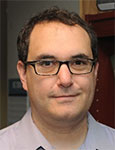
Benjamin E. Berkman, JD, MPH
Deputy Director, NHGRI Bioethics Core
Senior Staff Bioethicist, Section on Ethics and Genetics
NIH Clinical Center Department of Bioethics
In 2013, the ACMG first published its guidance for clinical laboratories performing exome and sequencing on the issue of reporting secondary (previously called “incidental”) findings. These are findings from an ACMG-defined list of medically actionable genes, regardless of whether the gene is related to the primary medical indication for testing. The recommendations and gene list have been prominent and much-debated since their initial release, and were updated in 2016 and then in May 2021. While the original recommendations were designed specifically for clinical use and not the return of research results, they have nonetheless been influential in genomic research settings.
Dr. Douglas Stewart is a current member of the ACMG Secondary Findings Maintenance Working Group, which developed the recent ACMG Secondary Findings v3.0 list. In this presentation, Dr. Stewart discussed the development of this list, as well as potential implications for cancer research involving sequencing. Dr. Benjamin Berkman, an expert on genomic return of results, commented on the ACMG recommendations and gene list and the ethical issues raised.
Returning Research Results in the NIH All of Us Research Program

Katherine Blizinsky, PhD
Policy Director, All of Us Research Program
National Institutes of Health
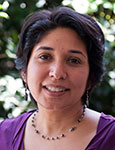
Subhashini Chandrasekharan, PhD
Ethical, Legal, and Social Implications Lead, All of Us Research Program
National Institutes of Health
The All of Us Research Program will return a variety of results to participants throughout the tenure of the project. Doing so at the scale of one million or more participants nationwide and across the social and cultural spectra entails careful reflection not only on the technical logistics of returning results, but also on the ethical, legal, and social implications (ELSI) of such activities. Members of the All of Us Policy Office discussed the path that has led to the program’s current return strategies, plans for return in the near and more distant future, and lessons learned from the initial stages of return, highlighting ELSI and policy considerations.
Implementation Tools for Engaging Diverse Communities

Mati Hlatshwayo Davis, MD, MPH
Lead HIV Clinician and GME Co-ordinator, John Cochran VA Medical Center
Co-Chair, Fast Track Cities St. Louis
St. Louis Board of Health Member
Associate Editor, IDSA Disparities and Culturally Competent Care
Dr. Davis shared data from her experience as both a physician and a public health advocate about existing health inequities for Black and Brown populations resulting from a history of structural racism in clinical medicine and research. She explained how cancer researchers can transform current investigative models to promote greater diversity and inclusion using tools of community engagement and implementation science, starting at the inception of protocol design and extending through the trajectory of the research partnership.
Promoting Inclusion in Oncology Clinical Trials

Barbara E. Bierer, MD
Professor of Medicine
Harvard Medical School and the Brigham and Women’s Hospital

Worta McCaskill-Stevens, MD, MS
Chief, Community Oncology and Prevention Trials Research Group
Division of Cancer Prevention
National Cancer Institute
Drs. Bierer and McCaskill-Stevens addressed how clinical trialists can advance the goal of facilitating equitable representation of participants in clinical research. They discussed barriers to promoting inclusion of the full range of populations likely, and intended, to benefit from study interventions or products based on the research. Practical and applicable guidance and tools for furthering diversity and equity in clinical trials was offered.
2020
Developing a Common Cancer Testing Terminology: A Collaboration of Engaged Stakeholders

Nikki Martin, MA
Director of Precision Medicine Initiatives at LUNGevity Foundation

Sue Friedman, DVM
Executive Director, Facing Our Risk of Cancer Empowered (FORCE)
This presentation described the collaboration within a multi-stakeholder, pan-cancer working team of patient advocacy organizations, medical societies, and industry groups, to promote the use of consistent terms for genetic and biomarker testing. Speakers explained how the working group identified that inconsistently applied terms may be contributing to low patient awareness and confusion about the type of testing needed and/or ordered. Speakers also reviewed specific umbrella terms that the working group identified for use across all types of cancer patient education, described future working group goals for expanding adoption of the terms, and shared the resources available at their Common Cancer Testing Terminology website![]() .
.
The Claims of Biospecimen Donors to Credit and Compensation

David Wendler, PhD
Senior Investigator and Head, Section on Research Ethics
Department of Bioethics
NIH Clinical Center
Current practice maintains that biospecimen donors do not have a claim to compensation. This practice is reflected in consent forms which disclose that donors will not receive a share of any profits derived from research using their samples. Dr. Wendler argued that this practice is mistaken, in some cases biospecimen donors merit compensation.
The MAGENTA Study: A New Genetic Testing Paradigm for Increased Accessibility

Karen H. Lu, MD
Professor and Chair, Department of Gynecologic Oncology and Reproductive Medicine
The University of Texas MD Anderson Cancer Center
The MAGENTA study aims to improve availability of genetic testing for hereditary cancer syndromes to at-risk individuals through the use of an online genetic testing service. making genetic testing accessible to participants without requiring them to travel to their healthcare provider. Dr. Lu, primary investigator of MAGENTA, discussed the preliminary study data and its implications.
Re-Purposing Research Samples During a Pandemic: Bridging Public Health Ethics and Research Ethics Frameworks

Sara Chandros Hull, PhD
Director, NHGRI Bioethics Core
Faculty, NIH Department of Bioethics

Benjamin E. Berkman, JD, MPH
Deputy Director, NHGRI Bioethics Core
Faculty, NIH Department of Bioethics
In the early days of a pandemic, repurposing biospecimens from existing research projects could prove to be extraordinarily valuable in achieving substantial and timely public health benefits. Nonetheless, there are potential ethical and regulatory uncertainties that may impede access to those valuable biospecimens.
In this talk, the speakers contended that there should be a presumption in favor of allowing use of previously collected identifiable research biospecimens without reconsent to directly address an infectious disease pandemic, assuming certain conditions are met. Their argument fills a unique yet critical gap in decision-making where the specific consent accompanying the identifiable biospecimens would not otherwise permit repurposing. Further they suggest that even if reconsent is feasible, doing so in a fast-moving crisis is not necessary. Their analysis also attempts to address the ethical concerns of public health authorities who already may have the power to use such specimens but are reluctant to do so.
Neglected Ethical Issues in Biobanking

R.Jean Cadigan, PhD![]()
Associate Professor of Social Medicine,
School of Medicine-Chapel Hill
Core Faculty of the UNC Center for Bioethics

Gail E. Henderson, PhD![]()
Professor of Social Medicine, School of Medicine-Chapel Hill
Director of the UNC Center for Genomics and Society
Between 2013 and 2018, Drs. Cadigan and Henderson published a number of articles using data from their 2012 study of U.S. biobankers to argue that several ethical issues had been “neglected” in the literature on biobanking. These included: 1. The discrepancy between limited funding and the assumption that the biobank will last “permanently;” 2. the lack of planning for what will happen to the specimens and data if the bank terminates; and 3. underutilization of specimens and data. Since that time, the biobanking industry has grown more complex, with increasing numbers of biobanks forming networks. In theory, these networks should facilitate increased stability of operations and utilization. The speakers presented current data from a new study on networked biobanks that assessed this prediction.
Ethical Challenges in Rapid Tissue Autopsy Programs

Rebecca D. Pentz, PhD
Professor of Research Ethics
Winship Cancer Institute

Jody E. Hooper, MD
Director of Autopsy and Director of the Legacy Gift Rapid Autopsy Program
Johns Hopkins University
Drs. Jody Hooper and Rebecca Pentz will discuss the ethical dimensions of implementing a rapid tissue autopsy program for cancer research. Dr. Hooper described her Legacy Gift Rapid Autopsy program at Johns Hopkins University and how that program engages patients and families to donate tissue after death, as well as specific ethical dilemmas that arise in practice. Dr. Pentz offered a bioethics perspective and explored with Dr. Hooper how the principles of autonomy, beneficence, and transparency provide insight into the ethical dilemmas and into seeking consent for autopsy tissue.
2019
Ethics of Ancestry Testing in Cancer Clinical Research

Adebowale A. Adeyemo, MD
Deputy Director, Center for Research on Genomics and Global Health
National Human Genome Research Institute (NHGRI)

Sara Hull, PhD
Section Head, Ethics of Genetics and Emerging Technologies, Department of Bioethics, Clinical Center, NIH
Ancestry testing to determine the ancestral origins or populations of an individual is now easily accessible. It has been suggested that ancestry testing could be used as a surrogate for race in biomedical research. Drs. Adeyemo and Hull: (a) described the potential advantages and disadvantages of ancestry testing as a surrogate for race, and (b) discussed the ethics of adopting such a practice in cancer research.
Secondary Research with Biological Samples and Data Under the Revised Common Rule

Yvonne Lau, MBBS, MBHL, PhD
Director, Division of Education and Development, U.S. Department of Health and Human Services, Office for Human Research Protections
Dr. Yvonne Lau from the U.S. Department of Health and Human Services' Office for Human Research Protections (OHRP) presented about recent regulatory revisions to the Common Rule, 45 CFR part 46, concerning secondary research uses of biological samples and associated data. New provisions pertaining to the protection of identifiable information and identifiable biospecimens were explored, including the mandated periodic review by federal agencies of technologies that generate identifiable data , and the new exemption for information that is regulated under the HIPAA Privacy Rule.
Conducting Scalable Virtual Genetic Counseling

Catherine A. Fine MS, CGC
Genome Medical
Ms. Fine, a board certified genetic counselor and former Clinical Associate Professor of Genetics at UNC Chapel Hill, presented on ethical and policy challenges in conducting scalable virtual genetic counseling, and how remote counseling modalities are viewed by patients and oncology providers.
Involving Patient Advocates in the Lifecycle of Research: Principles Meet Practice

Jon C. Tilburt, MD
Professor of Medicine
Professor of Biomedical Ethics
Mayo Clinic

Joel E. Pacyna, MA
Biomedical Ethics Research Program
Mayo Clinic
Involving participant advocates at various points within the research lifecycle is intended to ensure that target research populations are duly represented. Significant funding has been allotted to patient engagement activities that promote transparency and representation in research. However, involving advocates may require more than just executing prescribed processes, and even supplying a robust support infrastructure does not guarantee engagement. Instead, meaningful engagement may depend on developing complex human relationships. The speakers described their experience with a multi-year process involving patient advocates in a large multi-site clinical trial of a care-delivery intervention. They highlighted the non-straightforward nature of including advocates in the critique of the study'’'s design and procedures. They also described how advocates enhanced their study in ways not usually articulated in the literature: advocates brought forward critical counterpoints and "slowed" the pace of scholarly conversation, enriched the work with stories and multi-layered perspectives, and imbued the research with a nuanced understanding that could not be achieved without them.
Returning Individual Level Data to Environmental Study Participants: Views and Experiences of Investigators, Participants, and Clinicians
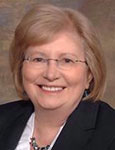
Susan M. Pinney, PhD, FACE
Professor, Department of Environmental Health, College of Medicine
Deputy Director, Center for Environmental Genetics Cancer Epidemiology
Control and Prevention Program Leader, Cincinnati Cancer Center
University of Cincinnati
Measurement of environmental biomarkers in biomedia is increasingly used as a method of environmental exposure characterization in human population studies. Reporting the results of biomarker measurements back to study participants has been controversial, including questions of ethics and whether the study participants would want to receive and would understand the results. There is no established guidance for investigators when they encounter an unanticipated finding of a very high level of a chemical or metal in a single study participant. This talk provided some background, then discuss the results of a survey of participants in three exposure studies of persons living in the Ohio River Valley, of whom 60 were parents of children who had been sampled. Some issues raised include: should very high environmental biomarker findings be reported to the research participant’s personal physician or public health officials? Are physicians equipped to answer the participant’s questions? Do they even want to be involved? Do community physicians want to receive that information? Are they prepared to counsel their patients?
Revisions to Federal Regulations Protecting Human Research Participants: New Consent Rules

Yvonne Lau, MBBS, MBHL, PhD
Director, Division of Education and Development, U.S. Department of Health and Human Services, Office for Human Research Protections
Dr. Yvonne Lau spoke about the new consent rules in the Final Rule revisions to the federal regulations protecting human research participants (45 CFR part 46), also known as the “Common Rule.”
2018
Trust and Willingness of African-Americans to Participate in Medical Research: The Legacy of Tuskegee and Henrietta Lacks

Stephen B. Thomas, PhD![]()
Professor, Health Services Administration
Director, Maryland Center for Health Equity
School of Public Health, University of Maryland
Dr. Thomas is the Principal Investigator, with Dr. Sandra Quinn, for the Center of Excellence in Race, Ethnicity and Health Disparities Research, funded by the National Institute for Minority Health and Health Disparities (NIMHD). His current research focuses on understanding how social context shapes attitudes and behaviors of underserved, poorly served, and never-served segments of society towards participation in health promotion and disease prevention activities.
In this webinar, co-sponsored by NCI’s Center to Reduce Cancer Health Disparities, Dr. Thomas spoke about the impact of the Tuskegee Study, and the more recent narrative of Henrietta Lacks, on trust and willingness amongst African Americans to participate in medical research.
Conducting Research with Archived Tissue: Lessons Learned and Strategies for Success

Edward Goldman, JD![]()
Professor, University of Michigan School of Public Health; Director, Sexual Rights and Reproductive Justice Institute and Associate Professor, University of Michigan Medical School; Adjunct Professor, University of Michigan Law School; President, Michigan BioTrust for Health

Natasha F. Bonhomme![]()
Chief Strategy Officer, Genetic Alliance
Ed Goldman is an attorney/ethicist at the University of Michigan and President of the Michigan BioTrust. He is on faculty at the University of Michigan Medical and Law Schools where he works in the intersection between law and medicine. From 1978-2009 he was Deputy General Counsel at the University of Michigan where he ran the Health System Legal office.
Natasha Bonhomme is the Chief Strategy Officer at Genetic Alliance, an organization dedicated to engaging individuals, families, and communities in their own health and the healthcare system. Part of her role includes directing their maternal and child health initiative, Expecting Health, which develops tools to facilitate informed decision making; positive health communications strategies for healthcare providers, researchers, and organizations; and engages parents and families.
Speakers discussed the ethical challenges surrounding the use of stored tissue in research studies, including how to educate donors about the potential scope of future research involving their biospecimens and data. Ed described the Michigan BioTrust, an honest broker biobank run by the State of Michigan, and Natasha discussed outreach strategies for engaging consumers about donating their biological samples and potential research uses.
Novel Approaches to Returning Genetic Research Results and Genetic Education in Cancer

Angela R. Bradbury, MD![]()
Assistant Professor of Medicine
Assistant Professor of Medical Ethics and Health Policy
Perelman School of Medicine at the University of Pennsylvania
In the past decade there has been increasing debate over whether researchers have an ethical obligation to share individual research results with participants. Numerous hypothetical studies have reported high interest in receiving research results, even if the participants knew there was nothing they could do about the results. Still, there remains no consensus on how and which results should be returned. More recently, studies have examined the participant uptake of results, strategies for return, and outcomes of returning results in cancer research. In this talk, Dr. Bradbury gave a brief overview of the return of results debate and discussed her work on this issue, including her NCI-funded projects on return of research results in cancer cohorts and clinical trials, as well as novel models for delivery of genetic education and results.
A Scalable Model for Returning Continually Updated Genetic Results to Consumers and Clinicians

Ellen T. Matloff, MS
President and CEO, My Gene Counsel
Ellen T. Matloff, MS is a certified genetic counselor and the President and CEO of a company that has created digital genetic counseling for physicians and consumers. Matloff will present on “A Scalable Model for Returning Continually Updated Genetic Results to Consumers and Clinicians”. Matloff will outline the ethical principles that must be considered in returning understandable, useable and current genetic information. She will also discuss how to make people stewards of their genetic data, provide them with research opportunities, and offer them the ability to provide outcome data and share their genetic data in public databases. She discussed how to make people stewards of their genetic data, provide them with research opportunities, and offer them the ability to provide outcome data and share their genetic data in public databases. She also described how research participants in clinical trials and large-scale genomic studies worldwide, and the 12 million consumers who have had direct-to-consumer testing fit into this equation.
Diversity by Design: Strategies to Engage Minority Communities in Bio-Medical Research

Cassandra Harris, MS, MCHES
Manager, Health Education, MD Anderson Cancer Center, Center for Community-Engaged Translational Research, Houston, Texas

Kathi Ridley-Merriweather, MA
Communications and Minority Outreach Coordinator, Komen Tissue Bank, Indianapolis, Indiana

René Arnold, MBA
Former Executive Director, Community Relations, The Fountain of Praise Church, Houston, Texas
Despite the Congressional directive and NIH policy to include minorities and women in NIH-funded clinical research, biomedical research currently does not have adequate representation of diverse populations. This webinar covered how community-engaged research strategies impacted the successful recruitment of diverse populations in two biomedical research recruitment projects: Project CHURCH – Saliva Sample Collection and The Komen Tissue Bank Event in Houston.
2017
The Intersection of Genomic Ancestry and Genomic Health: Cutting Edge Tools for Conquering Health Disparities

Timothy D. O'Connor, PhD![]()
Assistant Professor, Institute for Genome Sciences and Department of Medicine, University of Maryland School of Medicine
Dr. O’Connor described how new tools for analyzing evolutionary genetics data provide insights into the relationship between population history and health disparities, and how one’s ancestors impact risks and responses to disease. He used the Peruvian Genome Project and variant prioritization in non-Europeans as main examples of the interaction between ancestry, admixture, and genomics.
Inserting the Patient Voice in Today's Health Innovation Ecosystem

Marc M. Boutin, JD![]()
Chief Executive Officer, National Health Council
Patient-centricity is more than a buzz word – it requires being respectful of and responsive to patient preferences, needs, and values in the context of people's social circumstances. That often means integrating considerations beyond clinical outcomes such as a treatment's ability to help patients achieve personal goals. Patient-centricity is created by engaging, informing, and actively listening to people with chronic conditions throughout the research process and beyond. This session explored the recent rise and evolution of patient-centricity, discuss frameworks on when and how to engage patients in research, and presented rubrics on good practices for engagement and representativeness. By collectively embracing the voice of the patient, we will maximize the value and impact of research.
Tribal Perspectives on Data Sharing

Wylie Burke, MD, PhD![]()
Professor, University of Washington School of Medicine
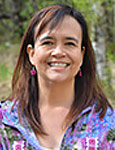
Denise Dillard, PhD![]()
Director of Research, Southcentral Foundation
The aim of broad data sharing is to maximize the public benefit derived from genetic and genomic studies. However, tribal leaders have a fiduciary responsibility to assure that uses of tribal data are responsible, particularly in light of past mis-uses of research data. The sovereign status of tribal governments has implications for research agreements and data-sharing negotiations. Recognizing the unique concerns raised by tribal entities, an NIH-funded research center involving a partnership among three tribal organizations and three universities convened a meeting to consider data sharing and related research issues. The speakers discussed the tribal perspectives that arose from the meeting, and from their experience participating in tribal partnerships. While there is strong tribal support for efficient research processes that expedite the benefits from collaborative research, there is also a need for data-sharing procedures that take into account tribal sovereignty and appropriate oversight of research, and move beyond existing models of individual consent and community engagement.
Diverse Patient Values About a "Library of Medical Information": Electronic Health Records (EHRs) and Biospecimens in Research

Sandra Soo-Jin Lee, PhD
Senior Research Scholar, Center for Biomedical Ethics and School of Medicine, Stanford University

Mildred Cho, PhD
Professor of Pediatrics, Center for Biomedical Ethics, Stanford University

Stephanie Alessi Kraft, JD
Senior Fellow and Acting Instructor, Seattle Children's Hospital and Research Institute
Linking EHRs with biospecimens to conduct systematic, population-based research provides unprecedented opportunities to improve health care. However, this practice poses significant challenges to traditional ethical and regulatory frameworks for data access, use, sharing, and oversight. Further, little research investigates how patients of diverse racial and ethnic backgrounds assess the risks and benefits of volunteering their EHR data and biospecimens for research.
This panel discussed an NIH-funded study of patient preferences and attitudes on the collection and use of EHRs and biospecimens in a large community-based healthcare system that is actively planning to create its own biobank. Study questions included: To what extent do patients perceive benefits of data sharing and analysis? What do they believe are acceptable tradeoffs between risks and benefits? What are the most important features of and preferred processes for governance and oversight? This panel discussed results from 20 focus groups of African American, Chinese, Hispanic, non-Hispanic White, and South Asian patients in a community-based healthcare system. It also discussed lessons learned from the development of novel multilingual videos as methodological tools.
Broad Consent for Research on Biospecimens: The Views and Experiences of Actual Donors

Christopher D. Andry, MPhil, PhD![]()
Vice Chair for Operations and Management, Department of Pathology and Laboratory Medicine, Boston University School of Medicine, and Scientific Director of Experimental Pathology Laboratory Services Core, Boston University Medical Center
Significant debate has occurred over the acceptability of broad consent approaches for collecting biospecimens to use in future unspecified research. Our speaker discussed his participation in an NCI-funded study eliciting the views of actual broad consent cancer tissue donors at four academic medical centers regarding the use of their biospecimens in future medical research.
Compensating Research Tissue Donors: Henrietta Lacks and the Ethics of Paying for Biological Specimens

Debra Mathews, PhD, MA
Assistant Director for Science Programs, Berman Institute of Bioethics and Associate Professor, Department of Pediatrics, Johns Hopkins University
Henrietta Lacks, foremother of the rapidly reproducing and scientifically invaluable HeLa cell lines, was a cancer patient at Johns Hopkins in 1951 when her tissue was (in accordance with standard practice at the time) collected and stored for future research without her knowledge or consent. In this presentation, Dr. Debra Matthews explored the ethical issues surrounding compensation for tissue donation as well as continued research uses of HeLa tissue, including the HeLa genome, and discussed the different and sometimes contradictory views of Lacks family members regarding these uses.
2016
Barriers to Clinical Trial Participation and Biospecimen Donation: Community Views and Ethical Considerations

Claudia Baquet, MD, MPH
Former Deputy Assistant Secretary for Minority Health, U.S. Department of Health and Human Services (HHS) and Associate Director of Cancer Control Science at NCI
Dr. Baquet has been a pioneer in advancing cancer disparities research and bringing national attention to the field of health disparities. Diversity in clinical trial participation and biospecimen donation remain significant barriers to equity in access to emerging prevention and therapeutic modalities. Dr. Baquet described an FDA-funded study in Maryland which examined in rural and urban communities the barriers, challenges, and supportive factors that impact a person's willingness to consider participating in clinical trials, factors associated with promoting biospecimen donation, and suggestions on how to increase public trust and research participation.
A Life Everlasting: The Story Behind Thomas Gray's Biospecimen Donations

Sarah Gray, MA
Director of Marketing and Public Affairs
The American Association of Tissue Banks
While struggling to cope with the loss of her anencephalic 6-day old son, Sarah navigated the complicated but ultimately rewarding path of donating Thomas's biospecimens to medical research. Thomas's retina and corneas were matched with research programs through the National Disease Research Interchange with the help of the Washington Regional Transplant Community. Sarah spoke about her experience as a research donor's parent, including her family's meetings with the PIs who received Thomas' corneas, retina, liver, and cord blood donations.
Redux and Remix: What Race and Genomics Are and Aren't in Meaning and Measurement

Vivian Ota Wang, PhD, MPhil, MS, FACMG
Program Director, Data Access and Sharing
National Human Genome Research Institute
The Human Genome Project raised researchers, policymakers, and the general public's expectations that genomics would provide a scientific foundation to improve the understanding of diseases, and population and racial differences. Despite the tumultuous history that race and genetics share, research and commercial efforts have been harnessing and increasing the availability and use of genomic and self-inferred "ancestry" information to researchers, clinicians, and the general public. The speaker discussed how a conversation beyond whether genomics is relevant to the salience of racial and cultural realities is needed to better understand how understandings of race are informing genomics, identity, and health disparities science and policy issues.
2015
Perceptions and Management of Uncertainty in Genome Sequencing

Barbara B. Biesecker, PhD
Head, Genetic Services Unit
Director, Genetic Counseling Training Program
National Human Genome Research Institute
Dr. Biesecker presented her research data assessing perceived uncertainty in genomic sequencing. She discussed interventions her research team is developing to assess their effectiveness in helping participants navigate responses.
NCI's ClinOmics Protocol

Javid Khan, MD
Deputy Chief, Genetics Branch
Head, Oncogenomics Section
Center for Cancer Research, NCI
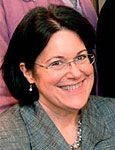
Kathleen Calzone, PhD, RN, APNG, FAAN
Senior Nurse Specialist, Genetics Branch
Center for Cancer Research, NCI
The primary purpose of the ClinOmics protocol is to take advantage of high throughput techniques to discover somatic alterations in cancer to identify novel biomarkers and biologically relevant targets for therapy to allow for the development of new treatment strategies for patients with high-risk malignancies. The ClinOmics investigators will perform genomics, proteomics, metabolomics and other high throughput methods to perform a comprehensive Omics analysis of tumor and normal tissues. Exome and cancer panel sequencing will be performed on tumor and germ line DNA in a Clinical Laboratory Improvement Act (CLIA) setting through the ClinOmics core, a newly established resource established by the CCR. High confidence somatic mutations and germ line mutations with established clinical validity and utility will be reported to CRIS, the NIH's electronic medical records system and reported to the treating physician and the patient.
Precision Medicine Research, Race and Ethnicity: Regulatory and Contractual Influences

Shawneequa Callier, JD, MS![]()
Assistant Professor of Clinical Research and Leadership
George Washington University
Genomic technology has the potential to transform the delivery of healthcare while improving the cost and efficacy of medical interventions. Historical population sampling approaches for investigating the genetic variations that influence patients. responses to drug therapy, however, are not representative of the complex ancestral backgrounds of individual patients. In this talk, the speaker discussed the regulatory challenges and opportunities related to addressing the ethnic and racial diversity among patients in the era of precision medicine, lawsuits filed against drug manufacturers for allegedly failing to appropriately disclose knowledge about poor drug response in specific populations, and strategies that ethics committees are implementing in low and middle income countries to advance genomic research in diverse populations.
Patient-Centered Outcomes Research in Cancer
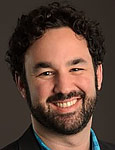
Jason Gerson, PhD![]()
Associate Director, Comparative Effectiveness Research Methods and Infrastructure, Patient-Centered Outcomes Research Institute (PCORI)
Dr. Gerson from the Patient-Centered Outcomes Research Institute (PCORI) presented on the significant regulatory and ethical issues PCORI encounters in its mission to fund comparative clinical effectiveness research while engaging patients and other stakeholders throughout the research process. PCORI sponsors research on issues related to human subjects protections, including Institutional Review Board (IRB) review and novel approaches to informed consent. Ethical issues arise in the context of study designs (e.g., cluster randomized trials, pragmatic randomized trials) or the use of particular data sources for comparative effective research (e.g., electronic clinical data).
Getting Personal: Ethical Issues in How We Talk About Genomics and Personalized Medicine

Rebecca D. Pentz, PhD![]()
Professor of Research Ethics, Emory School of Medicine and Winship Cancer Center
Dr. Rebecca Pentz, Professor of Research Ethics at the Emory School of Medicine and the Winship Cancer Center, spoke of the misleading nature of media hyperbole about personalized medicine and its potential negative impact on cancer patients and the general public. Television and radio advertisements, newspaper articles, and even science journals tend to exaggerate the progress of targeted therapies and the successful translation of genomic research to clinical oncology. Beyond toning down the rhetoric, better efforts at community engagement in medical research can hopefully counter some of these ill effects.
Mobile Consent Technologies: Ethical Considerations

John Wilbanks![]()
Chief Commons Officer, Sage Bionetworks

Dave Wendler, PhD
Head, Unit on Vulnerable Populations, Department of Bioethics, NIH Clinical Center
Mr. John Wilbanks, Chief Commons Office at Sage Bionetworks, and Dr. Dave Wendler, Head of the Section on Research Ethics in the Department of Bioethics at the NIH Clinical Center, presented on operational and ethical aspects of mobile consent technologies. Mr. Wilbanks provided an overview of the rapidly developing field of mobile and connected health technologies, culminating in Apple's recent internationally publicized ResearchKit app![]() . Dr. Wendler highlighted some of the many ethical issues that mobile consent technologies pose, including expansive recruitment opportunities, ability to comprehend and utilize technology, and diversifying participant populations.
. Dr. Wendler highlighted some of the many ethical issues that mobile consent technologies pose, including expansive recruitment opportunities, ability to comprehend and utilize technology, and diversifying participant populations.
2014
Engaging Communities in Biobanking Governance

Kyle Brothers, MD![]()
Assistant Professor, Department of Pediatrics, University of Louisville School of Medicine
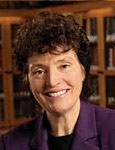
Barbara A. Koenig, PhD![]()
Professor of Medical Anthropology and Bioethics, University of California, San Francisco
The speakers discussed ethical issues and presented case studies of different models for engaging communities to inform the creation and governance of biobanks. Dr. Brothers' presentation, "Different Headaches: The Human Non-Subjects Approach to Biobanking," provided background on governance and discussed the creation of Vanderbilt University's BioVU. Dr. Koenig's presentation, "Using Deliberative Community Engagement to Help Craft Biobanking Policy," focused on a model of engagement grounded in deliberative democracy and used at the Mayo Clinic as well as other biomedical and health research sites.
Informed Consent in the Age of the Genome

Christine Grady, PhD
Chief, Department of Bioethics, Clinical Center, National Institutes of Health (NIH), and Head of the Department's Section on Human Subjects Research; Member, President's Commission for the Study of Bioethical Issues
Dr. Grady's presentation focused on communicating with research participants through the consenting process, with a focus on the recommendations set forth in two Bioethics Commission reports on Privacy and Progress in Whole Genome Sequencing (October 2012) and Ethical Management of Incidental and Secondary Findings (December 2013).
Consent and Data Sharing in the Genomics Context

Laura Lyman Rodriguez, PhD
Director, Division of Policy, Communications, and Education; and Acting Chief, Genomic Healthcare Branch, National Human Genome Research Institute
Dr. Rodriguez described the challenge of balancing competing ethical and policy priorities in genomics research, including calculating the risks of identifiability, public tolerance for loss of privacy, and promoting medical advances while ensuring transparency and appropriate stewardship of the public trust.
Working With Community Advisory Boards to Enhance Health Care Research

Maghboeba Mosavel, PhD![]()
Associate Professor, Department of Social and Behavioral Health, Virginia Commonwealth University School of Medicine
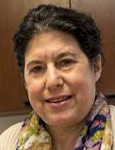
Laura Siminoff, PhD![]()
Dean, College of Health Professions and Social Work, Temple University
Drs. Mosavel and Siminoff are primary investigators in a survey study to examine the attitudes of family decision-makers of participants in the Genotype Tissue Expression Project (GTEx). GTEx compares gene expression in multiple types of normal tissue taken from deceased participants and works with multiple community advisory boards (CABs). The presenters described how CABs are used in medical research, including in biobanking and cancer prevention and control studies. CAB activities include recruiting participants, reviewing consent documentation, and assisting with study design and/or implementation.
Is Broad Consent Acceptable? Individuals' Perspectives From a Systematic Literature Review of U.S. Biobanks
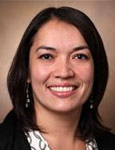
Náníbaa' Garrison, PhD![]()
Assistant Professor of Pediatrics, Center for Biomedical Ethics and Society, Vanderbilt University
Although research on de-identified human data currently does not require informed consent from participants, the Advanced Notice of Proposed Rulemaking (ANPRM) for Revision to the Common Rule proposes that consent be required for research using de-identified data/specimens in biobank research. In anticipation of this change, the Electronic Medical Records and Genomics (eMERGE) Network![]() is developing a survey instrument to elicit perspectives from a wide cross-section of patients on broad consent, sample and data sharing for future research, biobank governance, data protection, and return of research results. This talk highlighted key findings from a systematic literature review on individuals' willingness to provide broad consent for biobank research and data sharing, conducted for the eMERGE project.
is developing a survey instrument to elicit perspectives from a wide cross-section of patients on broad consent, sample and data sharing for future research, biobank governance, data protection, and return of research results. This talk highlighted key findings from a systematic literature review on individuals' willingness to provide broad consent for biobank research and data sharing, conducted for the eMERGE project.
Human Subject Protection Rules for Using Stored Tissue in Genomic Research

Julie Kaneshiro
Deputy Director, Office of Human Research Protections, U.S. Department of Health and Human Services
Ms. Kaneshiro presented on the human subject regulatory implications of using stored tissue for genomic research. She described requirements under the current regulatory scheme at 45 CFR part 46 (the Common Rule), as well as proposed amendments to the current regulations published in the Advanced Notice of Proposed Rulemaking in 2011. Under current rules and Office for Human Research Protections (OHRP) guidance, genomic data is not considered inherently identifiable and research involving only coded data and biospecimens is not considered to be human subject research. Revisions proposed to the Common Rule may alter some of these research guidelines in the future.
2013
Bio-Pin: A Novel Biobanking Concept

Jeremy Sugarman, MD, MPH![]()
Professor of Bioethics and Medicine, Professor of Health Policy and Management, and Deputy Director for Medicine, Johns Hopkins Berman Institute of Bioethics; and Marianna Bledsoe, MA, Private Consultant, formerly worked in biobanking policy at NIH and the U.S. Department of Veterans Affairs
Bio-PIN is a novel concept that recently was proposed to address ethical, legal, and social issues related to biobanking, such as privacy, informed consent, autonomy, data security, and public trust. This concept involves the anonymous deposition of samples and associated data into a biobank in which the samples and data are labeled using a code generated from an individual's biological characteristics. This session discussed the bioethical considerations of this system, as well as practical issues and challenges associated with its implementation.
Governing Clinically Relevant Data From Non-Clinical Sources: How to Access Good Data From Real People

John Wilbanks![]()
Chief Commons Officer, Sage Bionetworks

Sharon Terry, MA![]()
President and Chief Executive Officer, Genetic Alliance
The speakers described two paradigms that enable patients and prospective research participants to learn about and share health information. Mr. Wilbanks spoke about Portable Legal Consent, a web-based consent protocol that enables individuals to understand the implications of broad data sharing, and grants medical researchers unparalleled access to eligible and interested participants. Ms. Terry discussed "Reg4All," a patient-centric registry that offers clinical trial participants the ability to fine-tune how their data are used for research and with whom the data are shared.
The Myriad Mire: Patents and Trade Secrets in the Age of the Genome

Eleonore Pauwels, MA![]()
Public Policy Scholar, Woodrow Wilson International Center for Scholars

Mark Rohrbaugh, PhD
Director, Office of Technology Transfer, NIH
The presenters discussed the impact of the U.S. Supreme Court's recent Myriad Genetics patent decision and how, in the wake of that decision, companies may look to the trade secret doctrine to withhold genetic information.
Ethical Obligations to Disclose Incidental Findings and Individual Research Results in Cancer Genomics Research

Henry Richardson, PhD, JD, MPP![]()
Professor and Senior Research Scholar, Kennedy Institute of Ethics, Georgetown University
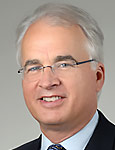
Stephen Chanock, MD
Director, Division of Cancer Epidemiology & Genetics, NCI
The presenters discussed potential ethical obligations to disclose incidental findings and individual research results to people who participate in genomics studies.

Charlisse Caga-anan, JD
Program Director, Genomic Epidemiology Branch, EGRP, DCCPS
charlisse.caga-anan@nih.gov

Esmeralda Casas-Silva, PhD
Scientific Program Manager, Biorepositories Research Branch, Cancer Diagnosis Program, DCTD
emi.casas-silva@nih.gov